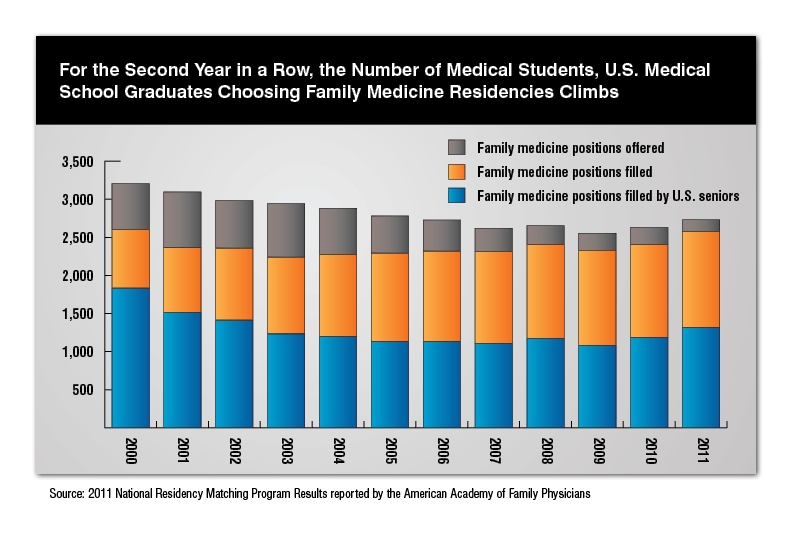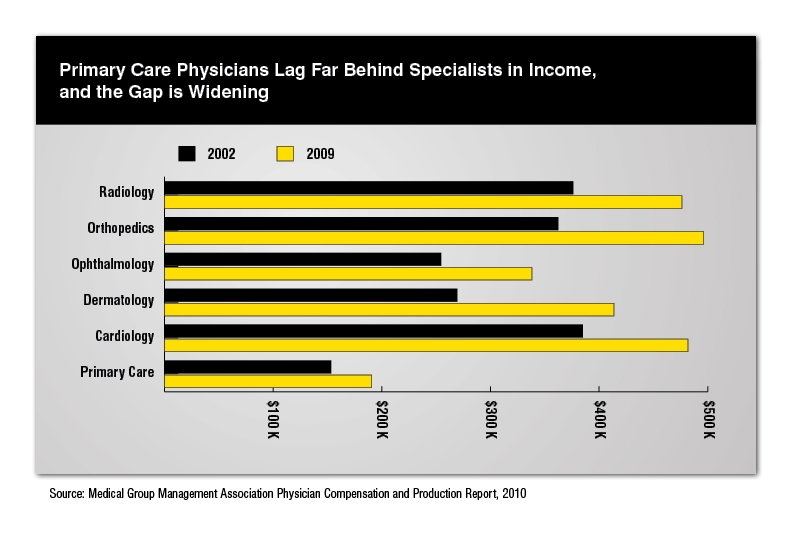Reflections of a pre-med student
By Monica Kortsha
As a pre-medical student and journalism/biology double major at UT, I was extremely excited when I saw TAFP’s internship posting. I thought it would be a great opportunity to learn more about what issues concern family physicians—a career I’m interested in—while applying and improving my journalistic skills. During my time at TAFP I’ve learned a lot about the issues family physicians face and that there is plenty a physician must care about outside of the exam room.
Last week I wrote a short article summarizing the results of the 2011 Main Residency Match and how family medicine fared. I was glad to see that family medicine is on the increase, but seeing that only about half the residency spots were filled by U.S. graduates while other specialties were almost exclusively filled with these students put into perspective that family medicine isn’t an alluring future for many U.S. medical students.

As a pre-medical student, the Match Day data made me stop and reflect on my personal thoughts about family medicine. The first thing that came to mind is how medical debt pushes people away from the field of family medicine.
Before I was an intern at TAFP I knew about physician payment and medical school debt superficially—that family doctors aren’t the highest-paid doctors and that medical school is expensive. But, after interviewing physicians for various stories I was able to think about these issues with more depth and often draw upon a personal story they shared with me.
One physician told me she is encouraging her daughter to look at options besides medical school because of the massive debt. Others told me that the huge pay gap between family physicians and medical specialists plays a big factor in driving medical students away from primary care and into more lucrative fields. This certainly came through in the Match Day data as residencies in fields with the highest pay grade were the most popular.

I also thought about the new problems I’ve learned about, like the struggle between family docs and nurse practitioners for practice domains or how IMGs in Texas face licensing roadblocks that cause some to leave the state altogether. It worries me to see all the health professional shortage areas in Texas, then learn about IMGs leaving and U.S. medical students going to other fields. And seeing the huge pay gaps between specialties and general practice is frustrating.
Despite the problems facing family medicine, what I find more memorable are the qualities of the family physicians I have interviewed and researched for stories. Every family doc I have spoken to is a high-caliber person whose impact on their community isn’t limited to their practice. Some speak out on behalf of TAFP; others organize community events to promote wellness or lead medical trips to foreign countries to help underserved communities.
It is especially inspiring for me to talk with female family docs who are established and successful physicians and moms at the same time. When thinking about the timeline of education and residency, I’ve wondered how women find time to find a partner and start a family. It is reassuring to talk to female doctors who have done just that.
Besides talking with family docs, I’ve learned about other topics that make me feel more optimistic about the future of family medicine. I’ve learned a lot about the health care reform law and how it relates to primary care physicians, and I’m glad to see Congress includes provisions that highlight primary care physicians as an important foundation of the health care system that needs to be supported.
What makes me feel the best about family medicine are physicians deciding to turn their practices into “medical homes” where patients and doctors get to know each other and forge a trusting relationship, care is coordinated, and technology is embraced to enhance communication between patient and physician. My grandfather, Opa as I call him, was a medical student in Italy in the 1940s; he wasn’t able to become a licensed physician because he had to escape as a political refugee. Nonetheless, the stories he tells me about practicing medicine radiate the passion he feels about caring and reaching out to the patient above all else. I believe the medical home embodies how he believes medicine ought to be practiced.
All in all, my experience at TAFP has shown me many sides to what family docs must face to care for their patients. While problems exist, I’m excited about the future of family medicine, especially with the health care reform law including provisions supporting family docs, and I hope the family residency Match Day numbers are even better next year.
Monica Kortsha is TAFP’s spring communications intern. She is a third-year pre-med/journalism student at the University of Texas at Austin.